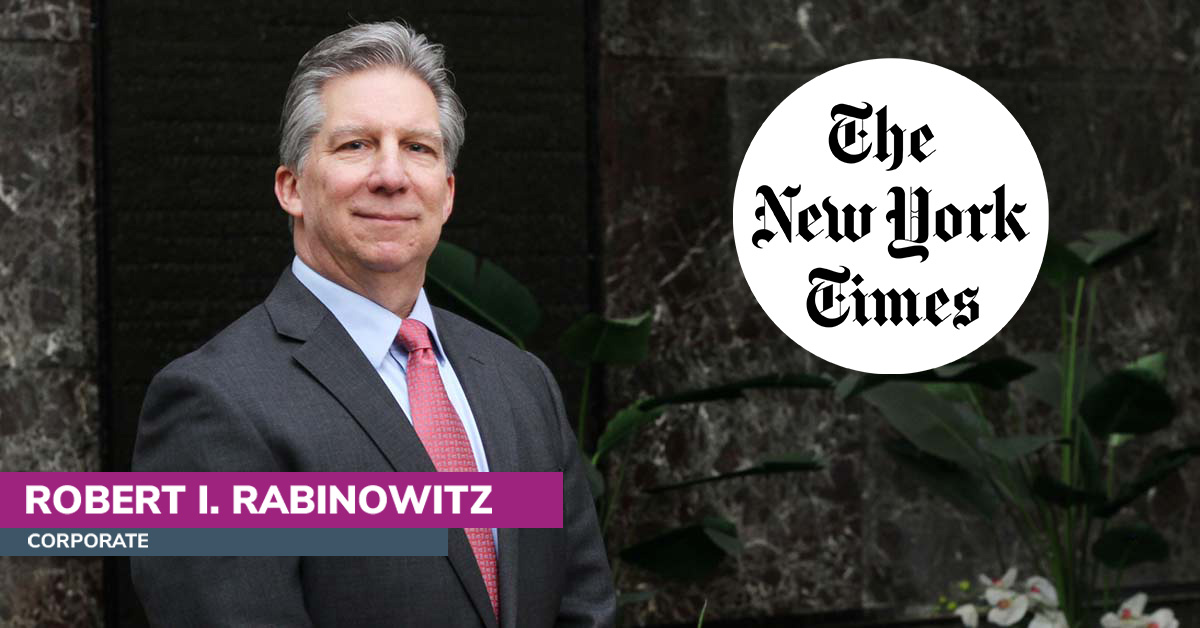Swindled Savings: How One Man Lost $740,000 to Scammers Targeting His Retirement Savings—The New York Times

Becker shareholder Robert Rabinowitz and his client, Barry Heitin, are featured in a New York Times article about how criminals bilked Heitin out of nearly all of his retirement savings. The story unfolds like a Hollywood script and raises a critical question: Were red flags missed by the institutions responsible for protecting Heitin’s assets?
Heitin, a 76-year-old retired lawyer, believed he was part of a government investigation, but he was actually assisting criminals in stealing roughly $740,000 of his own money through checking, savings, and IRA accounts. Rabinowitz is working to help Heitin recover some of the funds and says, “This type of activity is a classic sign of potential money-laundering activity and should have raised red flags.”
Investment firms are required to “make a reasonable effort” to obtain a trusted contact when accounts are opened or updated — someone who can be alerted should firms have reason to believe a customer is being exploited. Firms are also permitted — but not required — to temporarily freeze transactions or disbursements.
Adding to the pain, there is a $285,000 federal and state tax bill awaiting Heitin due to withdrawals from his tax-advantaged retirement accounts.
Criminals on the internet are increasingly targeting Americans over the age of 60, as they are viewed as having significant savings.
Read the full article here.
This story was also featured on the New York Times daily podcast, “The Headlines.” Listen here. (scroll to 6:00 mark)
Mr. Rabinowitz is licensed to practice in New York, New Jersey, the District of Columbia, and Maryland. He focuses his practice on legal and regulatory guidance in the formation and registration of broker/dealers and investment advisers, and representation of broker/dealers, investment advisers and their representatives with respect to regulatory and compliance-related matters.





